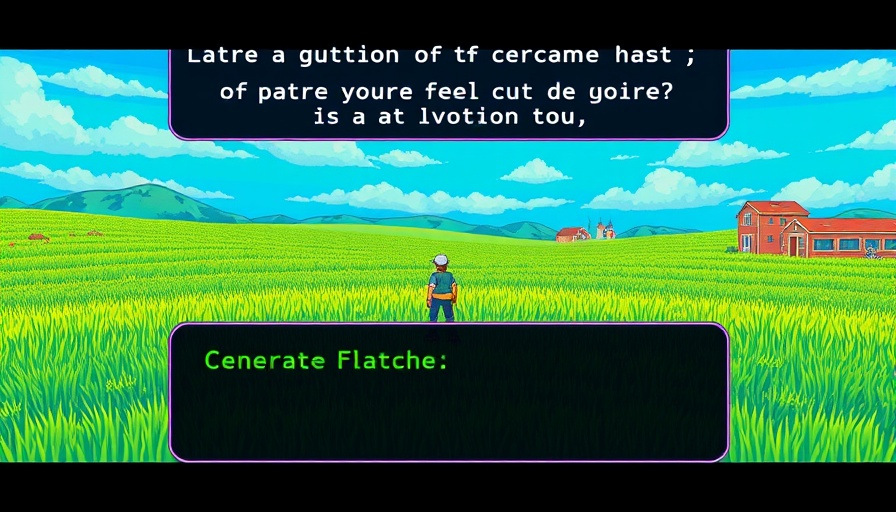
Enhancing AI's Capabilities with Hybrid Models
Anthropic's announcement of their new hybrid AI model, Claude Opus 4, marks a pivotal moment in the evolution of artificial intelligence. As AI continues to advance, it is essential to understand how these new capabilities can profoundly influence various industries. This model succeeds where its predecessor, Claude 3.7 Sonnet, fell short, by handling complex tasks autonomously for hours, thus elevating the role of AI from a simple assistant to a more proactive agent.
The Importance of Memory in AI Tasks
One of the standout features of Claude Opus 4 is its enhanced ability to maintain 'memory files', which allow the AI to store crucial information over extended periods. This feature is vital for completing intricate tasks such as creating guides for popular video games. By retaining context from previous interactions, the model can execute multiple-step processes with greater effectiveness, reducing the need for constant human input. Dianne Penn, Anthropic's product lead for research, highlights this shift, stating, "We see this model generation leap as going from an assistant to a true agent." This transformation underscores the potential for AI to significantly reduce the workload for humans.
Practical Demonstrations of AI Potency
Real-world applications are crucial in illustrating the power of this new technology. In one instance, Rakuten—the Japanese technology company—successfully utilized Claude Opus 4 to code autonomously for nearly seven hours on a complex open-source project. Such examples showcase the feasibility of employing AI for intricate assignments, which previously demanded more direct human involvement.
Comparing Hybrid Models: Opus vs. Sonnet
While Claude Opus 4 is reserved for paying customers, its companion model, Claude Sonnet 4, is available for free users, showcasing a broader strategy to introduce these transformative technologies to varied user bases. The former is designed for heavy-duty tasks requiring depth and complexity, while Sonnet 4 targets everyday applications with its more straightforward, efficient processing capabilities.
Trust and Safety in Autonomous Decision-Making
Despite these advancements, the discussion around safety and reliability remains pertinent. AI systems that are left unsupervised can encounter challenges and make erratic decisions. Industry experts, such as Stefano Albrecht, emphasize the need for secure frameworks to ensure that AI agents can operate autonomously without posing risks. This perspective is crucial as AI continues to be integrated into sectors where decisions carry significant consequences.
Societal Implications: The Future of Work & AI Integration
The ability of AI agents to handle complex tasks autonomously could potentially reshape labor markets. As these technologies evolve, workers in various fields may transition from performing routine tasks to overseeing AI operations, taking the role of observers and decision-makers. This shift could optimize productivity but also raises important questions about job displacement and the skills required in future workplaces.
Conclusion: Embracing AI's Evolution
As we embrace the evolution of artificial intelligence, it is essential to stay informed about the capabilities and potential challenges of models like Anthropic’s Claude Opus 4. Understanding how to leverage these technologies can lead to better strategies in business and beyond. Ensuring responsible development and implementation will be vital as we navigate the complex landscape of AI's future.
 Add Row
Add Row  Add
Add 
 Add Element
Add Element 


Write A Comment